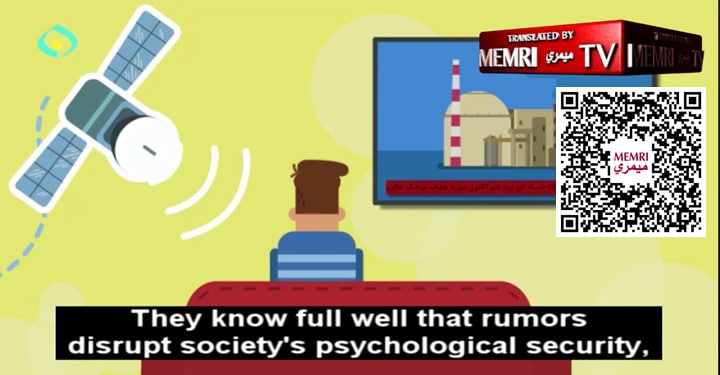
On October 22, 2022, Noor TV (Iran) aired an animated public service announcement warning against "fake news" and against "psy-op techniques" being used against the Iranian people. In the video, viewers are warned against rumors spread by people with "ulterior motives" that can become blown out of proportion if the facts of the matter are not known to the audience. Cartoon versions of BBC, Al-Arabiya Network, and the London-based Persian-language Manoto TV are depicted spreading unsubstantiated news reports. In addition, the video shows a man watching a BBC report in which what appears to be a nuclear facility is destroyed in an explosion, while the voice over states: "They know full well that rumors disrupt society's psychological security." According to the end credits, the video was produced by the Propaganda and Art Department of the religious seminaries.
Narrator: "Psy-op Techniques. This part deals with rumors. There are times when a person who makes up rumors is not doing this for the sake of humor, but has an ulterior motive. Rumors resemble a chain of infectious viruses, and if the truth of the matter is unknown to the audience, a rumor will blow out of proportion, and contaminate all the links of the chain.

"Some people do not stop making up rumors, because of their goals and vested interests.


"They know full well that rumors disrupt society's psychological security, and deprive the audience of their capacity for analytic thinking.


"They can accomplish this in a very fancy and presentable way, using phrases like: 'This was said by someone whose name cannot be mentioned.' 'A source that wants to remain anonymous...' 'This was said by first-hand witnesses, and not by us.' This way, they plant rumors in the minds of the audience.



"So first, do not fall into the traps of rumors. Second, do not spread rumors. And third, get your news and information from credible sources. Propaganda and art department of the religious seminaries."
















